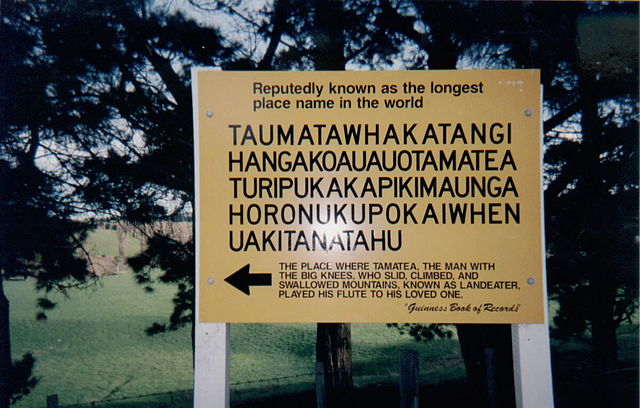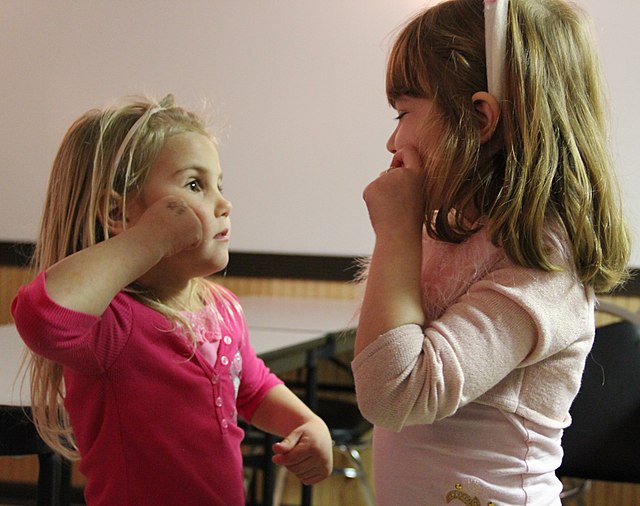A word is a basic element of language that carries meaning, can be used on its own, and is uninterruptible. Despite the fact that language speakers often have an intuitive grasp of what a word is, there is no consensus among linguists on its definition and numerous attempts to find specific criteria of the concept remain controversial. Different standards have been proposed, depending on the theoretical background and descriptive context; these do not converge on a single definition. Some specific definitions of the term "word" are employed to convey its different meanings at different levels of description, for example based on phonological, grammatical or orthographic basis. Others suggest that the concept is simply a convention used in everyday situations.
Sign of a New Zealand hill with an unusually long one-word name: Taumatawhakatangihangakoauauotamateaturipukakapikimaungahoronukupokaiwhenuakitanatahu (85 characters)
Words made out of letters, divided by spaces
Language is a structured system of communication that consists of grammar and vocabulary. It is the primary means by which humans convey meaning, both in spoken and written forms, and may also be conveyed through sign languages. Human language is characterized by its cultural and historical diversity, with significant variations observed between cultures and across time. Human languages possess the properties of productivity and displacement, which enable the creation of an infinite number of sentences, and the ability to refer to objects, events, and ideas that are not immediately present in the discourse. The use of human language relies on social convention and is acquired through learning.
A mural in Teotihuacan, Mexico (c. 2nd century) depicting a person emitting a speech scroll from his mouth, symbolizing speech
Cuneiform is the first known form of written language, but spoken language predates writing by at least many tens of thousands of years.
Children of deaf adults using American Sign Language
Braille, a tactile writing system






